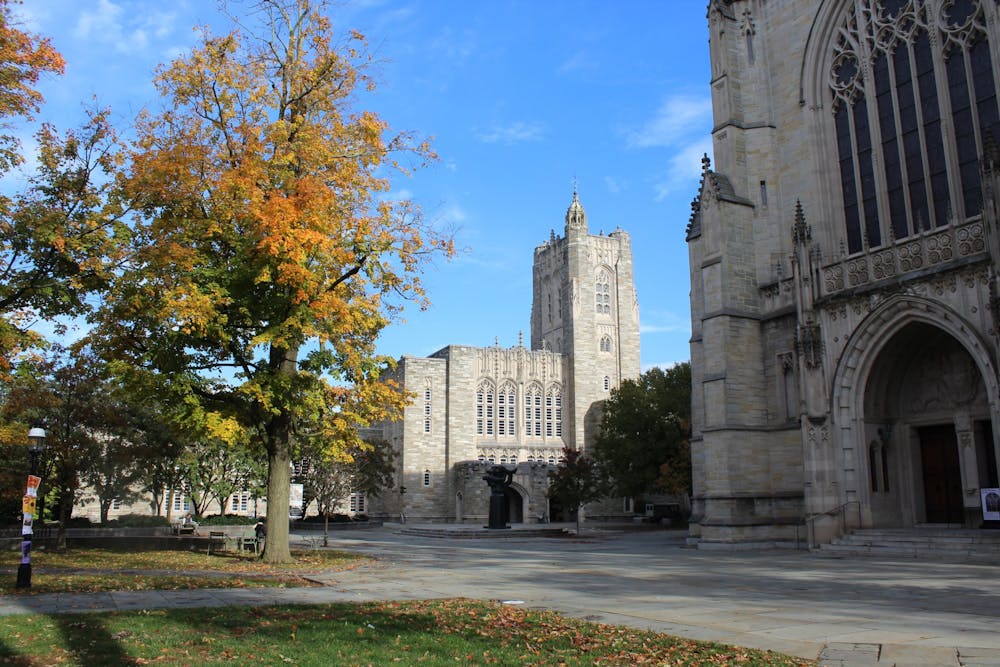The following is a guest contribution and reflects the author’s views alone. For information on how to submit a piece to the Opinion section, click here.
At Princeton, an invisible fault line runs through the student body. On one side are the pragmatists — students who treat their time here as a launchpad for maximizing lifetime earnings, often indifferent to what truly moves them or to the University’s motto of being in the nation’s service and the service of humanity.
On the other side are the dreamers: those who pursue work that stirs something profound within them, even if it means falling behind in the great race for pay and prestige. The pragmatists see the dreamers as naïve, squandering a rare credential that opens countless lucrative doors in exchange for idealism and vague mantras about “meaningful work.” The dreamers, in turn, see the pragmatists as sellouts: risk-averse, soulless, willing to trade wonder for a steady paycheck. So what, in the end, is a Princeton degree really for?
I take a more moderate view: Students should prioritize earning potential — unless they feel irresistibly called to something else. For all their supposed soullessness, the pragmatists make a compelling case because a college degree now competes with a mortgage. For instance, attending an out-of-state four-year public college averages about $49,080 a year, totaling $196,320 over four years. The average mortgage debt in the United States last year was around $252,505. If we frame higher education as an investment, it makes sense to expect a return.
That logic is challenging to ignore, especially in a world where student debt and economic precarity are no longer the exception, but the norm. At Princeton, a generous endowment softens that burden. But to ignore the financial power of a degree like ours is, in some ways, a disservice to those outside these ivy-covered walls — people who take on crushing debt for far less.
College, especially at elite institutions like Princeton, is often framed as a place to “find yourself.” This feel-good, Ted-talk mantra, as Nathan Heller notes in The New Yorker, dates back to the postwar expansion of American higher education, when college became a rite of personal discovery instead of vocational training. But that narrative assumes you have the freedom to explore. Millions of students in the U.S. and worldwide don’t have that luxury. For them, education isn’t self-discovery. It’s survival. It’s the one shot at changing a family’s future.
I’ve seen this firsthand. Though I was born in America, I spent my early childhood in the Philippines. I saw kids walk miles in the punishing heat, homemade slippers strapped to blistered feet, to make it to class. Some woke up before dawn to sell candy or collect bottles to help pay for uniforms, which, if torn, could mean staying home for a week. Public education in the Philippines is free on paper. But “free” school has hidden costs: transportation, supplies, and food. And the unspoken toll of choosing education over short-term work. Families made real sacrifices so their children could learn. And still, the odds were stacked against them.
This is why, in many ways, the Princeton debate — between dreams and dollars — rings a little hollow. The ability to ask, “What do I want to do with my life?” is a hallmark of privilege. Not everyone gets to ask. Some are too busy doing what they must to survive.
For my parents and many back home, the calculus was more blunt: What skills do you bring to the table? Which job will help your family most? Questions of passion or purpose only mattered if they sharpened your focus, not distracted from it.
And these concerns are on the minds of financially underprivileged Princeton students, too. According to the National Center for Education Statistics, low-income (Pell-eligible) students nationwide tend to choose traditionally practical majors, especially STEM and business, by roughly 10-15 percentage points compared with their non-Pell peers. With about a quarter of the Class of 2028 eligible for federal Pell grants, not only should we be more sympathetic to the autonomy of students who choose a pragmatic approach regarding majors, careers, and potential income, but we must also understand that a pragmatic approach to a college degree does not necessarily derive from a selfish motive. For some of us, our ideal future is a practical one.
That doesn’t mean we should abandon idealism. We need dreamers — people working on climate change, AI ethics, and the future of democracy. These jobs may not be the most lucrative, but they are among the most necessary. Still, we must be honest: Pursuing those paths is easier when your basic needs — and your family’s — are already met.
I dream of a world where every student, everywhere, gets to choose their future, not be forced into one. That’s a world worth building. And it starts with recognizing how lucky some of us are even to ask the question.

Joel Ibabao Jr. is an economics major from Queens, N.Y., and the founder and captain of Princeton Ethics Bowl. He can be reached at joelibabao@princeton.edu.
Please send any corrections to corrections[at]dailyprincetonian.com.








